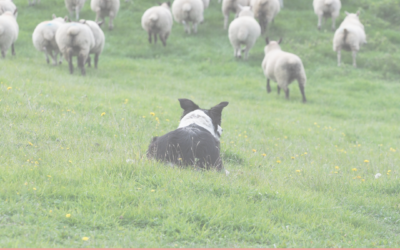Social media is full of posts from people asking for trainers who are breed experts for their specific dog’s breed. It’s also full of terrible advice that certain breeds require certain dog training methods while other breeds need a different type of training. But here’s a newsflash – all dogs, all breeds, all ages, all sizes, all animals (with a central nervous system), all learn the same ways, including humans. All the flashy “new” dog training methods or tricks and techniques are really just variations on how we know animals learn – through consequences and associations – good ‘ol classical and operant conditioning. You can download my infographic here on how dogs learn.
Here’s some myth busting about dog training methods, behavior issues and breeds:
- No breed needs a heavy hand – There is no reason, ever, to use punishment based methods of training like prong, shock or choke collars. Yelling at your dog won’t change their behavior long term. Leash corrections or eh-ehs won’t teach your dog what to do instead. Shift your focus from punishment after your dog has done the wrong thing to teaching your dog how to make better choices and reinforce the things you want more of. I don’t care of your dog is a Mastiff, German Shepherd, Rottweiler, Doberman, Pitbull type dog, Maltese, Doodle or Chihuahua – they all learn the same way and none of those ways involve pain, intimidation or fear. Learning shouldn’t hurt.
- No certain behavior issue needs punishment – In uneducated trainer circles I’ll see things like “positive reinforcement works if you don’t have a “real” behavior issue but if your dog does xyz then he needs *insert aversive training recommendation here.*” Not only does this show a critical gap in how animals learn and overall learning theory but they’re essentially saying is if your dog needs to learn how to sit, you can use food but if you have a dog with aggression, resource guarding or “real” behavior issues that those somehow require a firmer training method, which almost certainly involves pain or fear. In fact, those “real” behavior issues are usually rooted in fear, and we know from current research that punishment based methods of training make fear and aggression worse. No matter what the issue – stranger danger, fear of kids, resource guarding, leash pulling, separation anxiety or anything else, we can improve those “issues” without using force, without scaring or hurting the dog and get positive results.
- Fearful dogs don’t just need more obedience – Fear is not disobedience. Basic obedience will not make a dog less fearful. Dogs who “don’t listen” or “won’t follow commands” when they’re fearful don’t need more basic obedience skills. Fearful dogs need to learn the thing they’re afraid of isn’t scary, which is an entirely different training approach than teaching basic obedience skills. Fearful dogs don’t need corrections, they need compassion.
- Increasing access won’t make your dog worse – Deprivation doesn’t reduce desire. In fact, if usually increases desire. Think about when you’re on a diet or skipping alcohol for a month. Does that suddenly make you want those things less? Not usually. Often deprivation increases our desire to have the thing we can’t have. If your dog has a breed tendency for things like dissecting, critter chasing or herding, depriving them of those things won’t make their desire to do them go away. Giving your dog boxes to shred won’t teach him he can shred other things in your house. Recently I wrote about enrichment not being optional and finding outlets for dogs to channel their natural dog skills and instincts into safe ways we approve of like enrichment and training opportunities.
- All dogs are food motivated – If your dog is alive, he’s food motivated. Sure, some dogs may prefer other reinforcement like play, chasing critters but the overwhelming majority of dogs will work for food, if what we are offering is worth their work. Think of food as your dog’s paycheck. There’s a difference between a $5 paycheck and $100000 paycheck. The value of your food is the amount of the paycheck so if you’re struggling with your dog not being motivated by food, revisit the value of your food/paycheck. And read my post here on “But, my dog isn’t food motivated” for common reasons why a dog might not want your food.
Do you need help? Grab a session with me here. And be sure to sign up for my free weekly newsletter so you don’t miss out on free tips, videos, personal stories, client successes and more!
Happy training!
![]()




